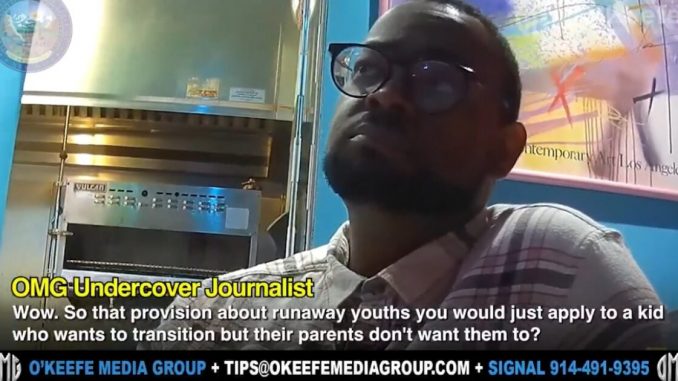
| Published May 31, 2025
Nevada DHHS Official Admits to Hiding Castration Surgeries From Parents,” which centers on undercover footage released by the O’Keefe Media Group. In this footage, Deshaun Eli Mack, a Family Services Specialist with the Nevada Department of Health and Human Services (DHHS), discusses facilitating gender transition procedures for minors without parental knowledge or consent.
According to the article, Mack explains methods to navigate around parental involvement, such as advising minors to have doctors declare procedures as medically necessary to secure Medicare coverage. He also mentions utilizing the “runaway youth” provision to authorize treatments independently of parental oversight. Mack is quoted saying, “The parents don’t need to know that you’re transitioning. You can just go to the doctor.”
This report has intensified the ongoing debate over parental rights and the role of state agencies in minors’ healthcare decisions, particularly concerning gender-affirming treatments. Some argue that withholding such information from parents undermines their rights and responsibilities, while others contend that it protects vulnerable youth from potential harm in unsupportive environments.
The situation underscores the complex intersection of healthcare, parental rights, and the autonomy of minors, prompting discussions on ethical practices and legal frameworks governing such sensitive matters.
The implications of this report, if accurate, are significant and multi-layered. Here’s a breakdown of key areas affected:
1. Parental Rights
-
Erosion of parental authority: If state workers or doctors facilitate gender transitions without informing parents, it could be seen as undermining the legal and moral role of parents in a child’s life.
-
Potential legal battles: Parents may pursue lawsuits or legislative remedies to reinforce their right to be involved in such decisions.
2. State and Federal Policy
-
Scrutiny of Medicaid practices: The claim that Medicare or Medicaid may cover surgeries without parental consent could trigger investigations into healthcare funding practices.
-
Legislative pushback: Lawmakers may respond with stricter laws requiring parental notification or consent for gender-related medical care.
3. Child Welfare and Ethics
-
Debate on autonomy vs. protection: Supporters argue that some youth may face abuse or rejection at home, making confidential medical access vital. Opponents argue that minors lack the maturity to make irreversible decisions alone.
-
Professional accountability: Medical and child welfare professionals may face increased oversight or discipline if they’re found circumventing parental involvement.
4. Public Opinion and Polarization
-
Fueling cultural divides: Stories like this can further polarize public opinion on gender issues, potentially inflaming political rhetoric and media coverage.
-
Trust in institutions: Public trust in schools, health agencies, and child services could be shaken, especially among parents who fear losing influence over their children’s upbringing.
Overall Takeaway:
There’s a growing and deeply controversial clash between parental rights, youth autonomy, and the role of state agencies in gender-related healthcare decisions. If the claims are accurate, it raises serious concerns about government overreach, medical ethics, and the transparency of care provided to minors—especially when parents are deliberately left out of life-altering decisions.
This situation also reflects broader societal tensions around gender identity, trust in public institutions, and what safeguards should exist for both children and their families.
SOURCE: THE GATEWAY PUNDIT – OMG: “Parents Don’t Need to Know That You’re Transitioning” – Nevada DHHS Official Admits to Hiding Castration Surgeries From Parents (VIDEO)





1 Trackback / Pingback